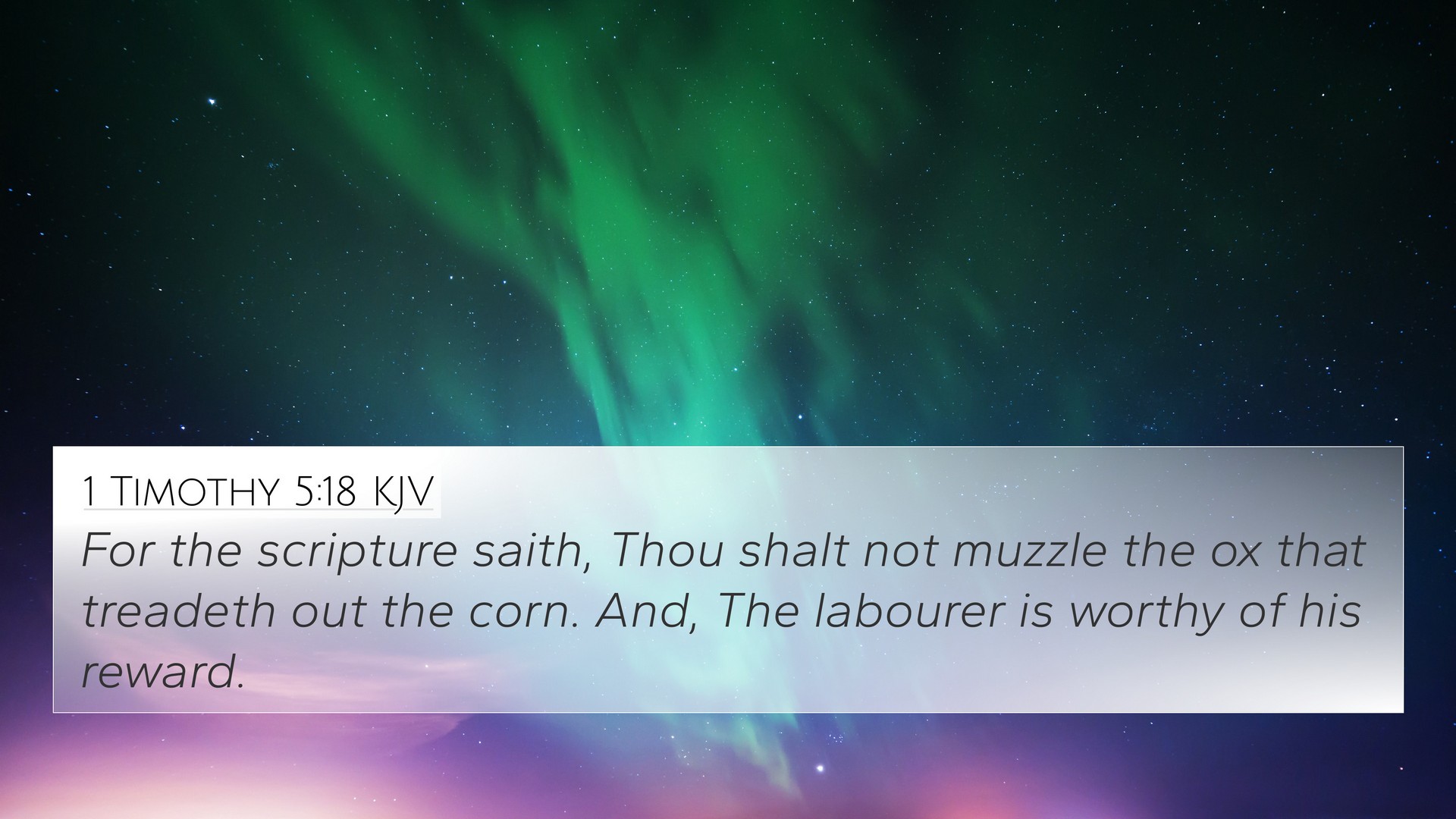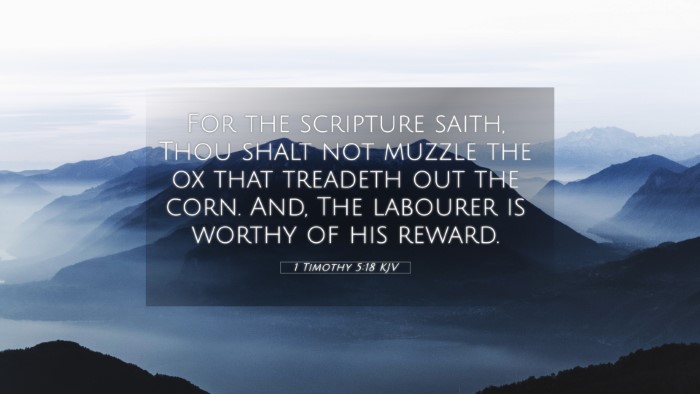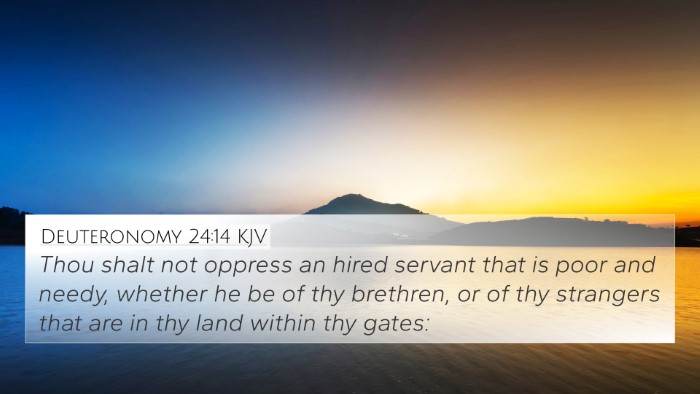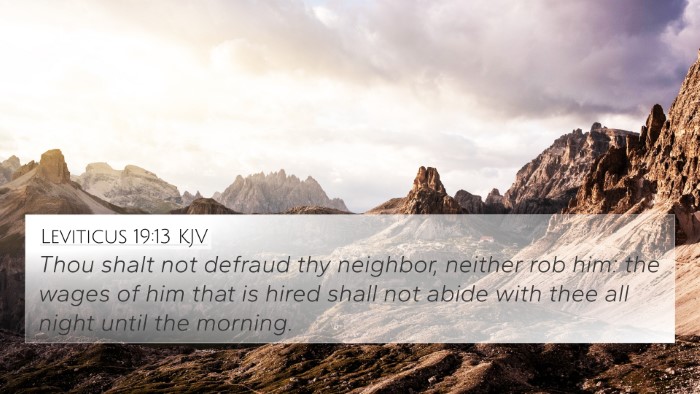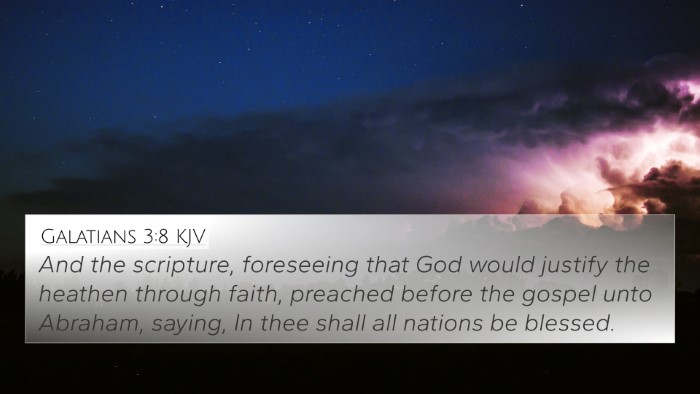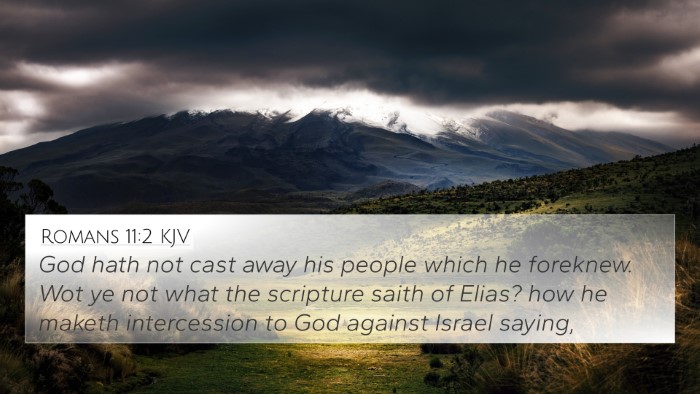Understanding 1 Timothy 5:18
1 Timothy 5:18 states: "For the scripture says, 'You shall not muzzle an ox when it treads out the grain,' and, 'The laborer deserves his wages.' This verse illustrates the principle of just compensation for labor, drawing upon both the Old Testament law and Jesus’ teachings. Here, we will explore the meaning and significance of this passage, along with cross-references that enhance our understanding.
Meaning and Context
This verse comes from a section of Paul's letter to Timothy that discusses the issues of church leadership, supporting the needy, and the importance of fair treatment of those who serve in ministry. By referencing scriptural laws and teachings, Paul emphasizes the value of recognizing the hard work of those who minister to the community.
Key Insights from Commentaries
-
Matthew Henry's Commentary:
Henry notes that the use of an ox as a metaphor highlights the injustice of denying someone their due. Just as an ox should not be muzzled while working, neither should those who preach the Gospel be denied their rightful recompense. This analogy serves to reinforce the broader theme of divine justice and provision.
-
Albert Barnes' Notes:
Barnes elaborates on the phrase "the laborer deserves his wages," suggesting that laborers, especially those engaged in spiritual service, perform essential work for the community. He stresses that supporting them is not merely a charitable act—it is a matter of justice.
-
Adam Clarke's Commentary:
Clarke examines the cultural context behind the oxen and the laborer analogy, resulting in a deeper understanding of rights in an agrarian society. He emphasizes that Paul utilizes practical examples so that all readers, regardless of societal position, can comprehend the principles being taught.
Cross-References to 1 Timothy 5:18
This verse echoes several important themes throughout Scripture, including fair compensation, recognition of labor, and divine justice. Here are some significant cross-references that highlight these themes:
- Deuteronomy 25:4: "You shall not muzzle an ox when it is treading out the grain." This Old Testament law directly supports Paul's argument about providing for those who work.
- Luke 10:7: "And remain in the same house, eating and drinking what they provide, for the laborer deserves his wages." Jesus affirms the principle that workers, particularly in ministry, should be compensated fairly.
- 1 Corinthians 9:9-14: Paul argues for the right of the minister to receive support, using similar examples and emphasizing the precedence of this principle in the scriptures.
- Galatians 6:6: "Let the one who is taught the word share all good things with the one who teaches." This verse captures the reciprocity expected in the teaching and receiving relationship within the church.
- Matthew 10:10: Jesus instructs disciples to take nothing but to rely on the kindness of those to whom they minister, emphasizing the importance of mutual support.
- 2 Corinthians 9:6: "The point is this: whoever sows sparingly will also reap sparingly, and whoever sows bountifully will also reap bountifully." The harvest metaphor reinforces the idea of fairness in spiritual labor.
- Philippians 4:15-16: Here, Paul expresses gratitude to the Philippians for their support, exemplifying the practical application of treating laborers with honor and respect.
Applying and Understanding the Teachings
The teaching found in 1 Timothy 5:18 encourages believers to think thoughtfully about the support they offer to their spiritual leaders and the ethical implications of labor within the church community. Here are a few practical takeaways:
- Recognize Contributions: Understanding the labor and sacrifices of spiritual leaders can foster a more supportive church environment.
- Seek Fair Compensation: It's important for congregations to ensure that those who work for the ministry are compensated in line with their service and contributions.
- Learn from Scriptural Patterns: As believers examine cross-referenced verses, they can appreciate the continuity of God’s principles regarding justice throughout the Bible.
Conclusion
In summary, 1 Timothy 5:18 presents an important biblical principle regarding fair labor and compensation, using scriptural references to convey its significance. By exploring this verse along with its connections to other Bible passages, believers gain a deeper understanding of God’s intentions for justice and support within the church. Through cross-referencing, we can uncover thematic connections that enrich our understanding and application of Scripture in our lives.
